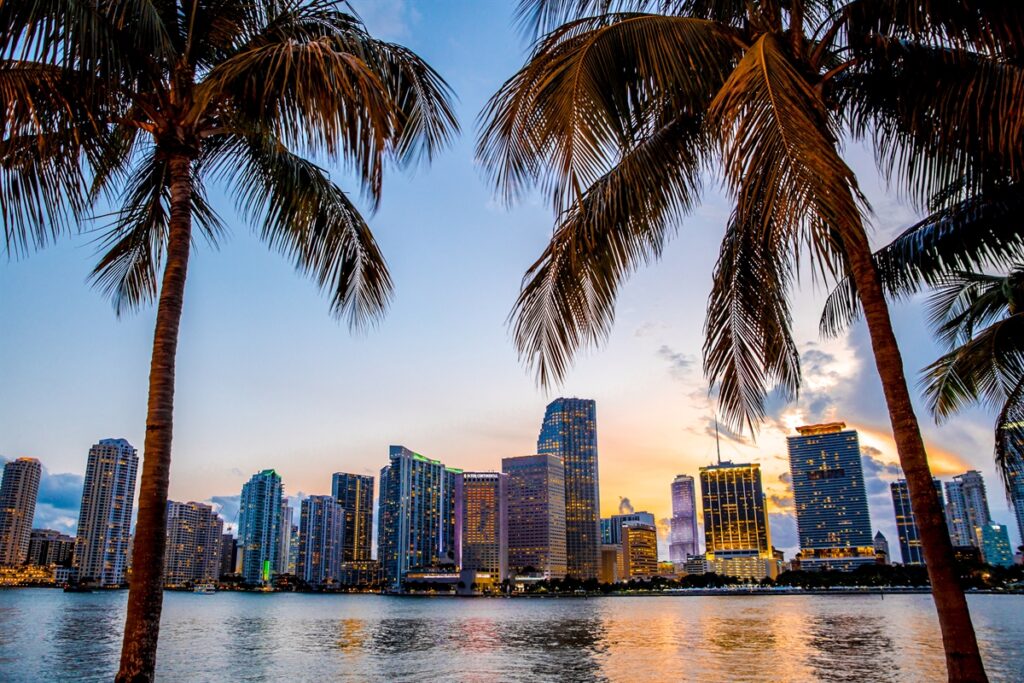Nearly 1,000 people move to Florida every day. If you’re about to join their ranks, there are 5 factors you need to consider. One of the many purposes for Florida’s rapid growth is the promotion of the state as a desirable commercial area.
1. How Are You And Your Belongings Getting There?

How far away is Florida and how are you getting there? There are a few options when moving but here’s the best one: Do it all yourself. Here’s why.
- Moving companies are expensive.
- When you and your belongings travel separately, you’ll arrive separately. You don’t want to be stuck without your bed and the coffee maker.
- You are the person who cares the most about your belongings, so you’ll be the gentlest with them.
- It’s the most cost-effective option.
- You can rent a Flex Fleet vehicle to move with and they’ll pick it up when you’re done.
- You’ll get to see the sights on the way, and move at your own pace.
- You can start unpacking as soon as you arrive.
- You won’t have to deal with telling movers where everything is going or what’s fragile.
Getting there is part of the journey, embrace it and make it a memorable road trip.
2. Consider The Cost

Overall, Florida’s cost of living is about average with the rest of the U.S. There are however a few areas to be aware of when it comes to costs.
- Surfside, a town with a population of almost 6,000, is the most expensive town in Florida as of 2024.
- Moving to Pensacola could save you cash, its cost of living is 8% less than the rest of the U.S. It also boasts housing costs that are 27% less than average.
- Homeowners’ associations are common in Florida, and they can have high fees.
- Because of the hurricane risk, home insurance can be quite expensive.
- The positive news is that most housing expenses are equivalent to those of other jurisdictions, and some also offer concessions. You should plan to pay less on hot fuel and winter coats than in other areas of the world due to the mild weather. State income tax, which does not apply in Florida, is the greatest money saver. That’s right, in the Sunshine State, you don’t have to pay state taxes, which means you’ll have more money.
Make sure to consider all the possible fees you’ll pay for living in each area.
3. Know Your Locations

Florida is home to lovely beaches, interesting wildlife, and many tourist towns. It’s important to know what area you’re moving to and how active it is. Here are the top ten most active cities, according to demographics.
- Jacksonville
- Miami
- Tampa
- Orlando
- St. Petersburg
- Hialeah
- Tallahassee
- Port St. Lucie
- Cape Coral
- Fort Lauderdale
These cities are excellent if you want a busy, active lifestyle. If not, you may want to look elsewhere.
4. Learn About The Wildlife

Florida contains an impressive selection of animals. If you’re going to live there, you’ll need to know about them. Florida is home to:
- 700 kinds of land animals.
- 200 kinds of freshwater fish.
- 500 kinds of marine fish and mammals.
Some common animals you might see include:
- The Northern Cardinal
- Bald Eagles
- Pelicans
- American Alligators
- Florida Manatees
- Dolphins
- Raccoons
- White-Tailed Deer
Remember to find out what animals like to roam in your new backyard before you set up the barbecue.
Insurance
Another big element in the living costs is insurance. Flood insurance is an extra insurance plan to consider if you’re moving to Florida. Recognize how we talked about storms, the Everglades, and rivers? They put the entire state of Florida at risk of flooding. Flood insurance is frequently required in Florida because most homes are located near water.
5. Plan For The Weather

Florida has its own unique weather situation. Here’s what you should know before making the move.
- Florida has a mild climate with two distinct seasons.
- The seasons are wet and dry. Wet season is from May to October and the dry season is from November to April.
- During the wet season, severe thunderstorms are possible.
- Florida gets 68% of its total rainfall for the year during the wet season.
- Hurricane season runs from June 1st to November 30th.
Keep the weather in mind when you make plans for your move, you don’t want to unload the couch in a rain shower.
However, we learn how to plan for it. It wouldn’t have to be a significant barrier from all that this amazing state has to offer if you brush up on your climate understanding, remain aware, and make preparations yourself.
Housing
The housing market is another popular top-of-mind item when it comes to things to know about living in Florida. If you plan to purchase or rent a house, learning about housing prices and the types of homes that are common in the area is useful. The major concern for any family contemplating relocating to Florida is whether to buy or rent. The next thing to worry of is the kind of home you want.
Careers in Florida
It is quite important for people moving to Florida to know if there is a job opportunity that will promote their lifestyle. If you don’t have a job, you will face difficulties in your lifestyle since some of the places in Florida are quite expensive. Moving to Florida without even a job is not suggested, especially if you have family to raise. One of the many purposes for Florida’s rapid growth is the promotion of the state as a desirable commercial area. Florida’s constructive, pro-business govt is a master at bringing in new high-wage jobs for workers who can compete globally.
If you keep these five factors in mind when planning your move to Florida you’ll have a smooth and successful trip. Don’t forget your flip-flops!







